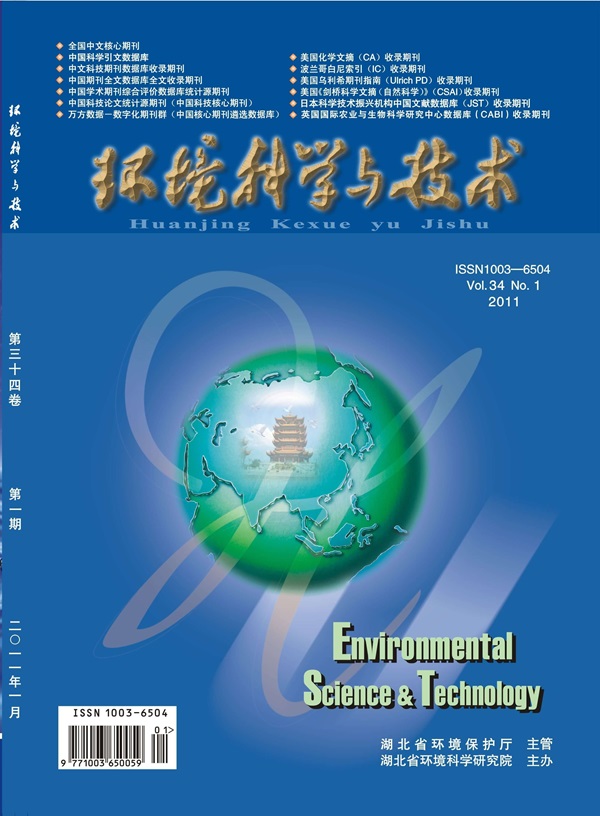Biorefining of Anaerobic Digestates for the Recovery of Biostimulants and Bioelicitors for Immune Priming and Plant Protection.
IF 11.3
1区 环境科学与生态学
Q1 ENGINEERING, ENVIRONMENTAL
引用次数: 0
Abstract
Olive oil production is a major global agricultural industry that generates significant waste, particularly olive pomace, which poses environmental and economic challenges. Anaerobic digestion emerges as a promising solution for its valorization into biogas. However, the resulting digestate remains underutilized and its long-term environmental impact is uncertain. Traditional disposal methods are costly and inefficient, underscoring the need for more sustainable approaches. In this study, olive pomace digestate was biorefined, and its components were upcycled into soil amendments and plant immunostimulants. Metagenomic analysis revealed a diverse microbial community in the liquid fraction. A microbial-enriched protein extract (MIPE) was obtained, containing precursors of microbe- and damage-associated molecular patterns, including Flagellin, Elongation Factor Tu, and the plant phytocytokine Golven. Plant treatment with MIPE triggered a rapid immune response, characterized by oxidative burst, mitogen-activated protein kinase activation, and the upregulation of defense-related genes such as CYP81F2, FRK1, and WRKY53. MIPE-induced priming enhanced Arabidopsis and tomato resistance to Botrytis cinerea and Pseudomonas syringae. Our findings highlight olive pomace digestate as a valuable growth biostimulant, with its liquid fraction also representing a promising resource of immunity bioelicitors. This refinement valorizes olive mill waste, providing a sustainable alternative to chemical fertilizers and pesticides and supporting sustainable agriculture.厌氧消化液的生物精炼用于回收用于免疫启动和植物保护的生物刺激剂和生物激发剂。
橄榄油生产是一个主要的全球农业产业,产生了大量的废物,特别是橄榄渣,这对环境和经济构成了挑战。厌氧消化是将其转化为沼气的一种很有前途的解决方案。然而,由此产生的废物仍未得到充分利用,其长期环境影响尚不确定。传统的处理方法既昂贵又低效,因此需要更可持续的方法。在本研究中,对橄榄渣消化液进行生物精制,并将其成分升级为土壤改良剂和植物免疫刺激剂。宏基因组分析显示液体部分微生物群落多样性。获得了一种微生物富集蛋白提取物(MIPE),其中含有微生物和损伤相关分子模式的前体,包括鞭毛蛋白、延伸因子Tu和植物细胞因子Golven。MIPE处理植物引发了快速的免疫反应,其特征是氧化爆发、丝裂原激活的蛋白激酶激活,以及防御相关基因(如CYP81F2、FRK1和WRKY53)的上调。mipe诱导的引物增强了拟南芥和番茄对灰葡萄孢菌和丁香假单胞菌的抗性。我们的研究结果强调了橄榄渣消化液作为一种有价值的生长生物刺激剂,其液体部分也代表了一种有前途的免疫生物激发剂资源。这种改进使橄榄磨坊的废料增值,为化肥和农药提供了可持续的替代品,并支持可持续农业。
本文章由计算机程序翻译,如有差异,请以英文原文为准。
求助全文
约1分钟内获得全文
求助全文
来源期刊

环境科学与技术
环境科学-工程:环境
CiteScore
17.50
自引率
9.60%
发文量
12359
审稿时长
2.8 months
期刊介绍:
Environmental Science & Technology (ES&T) is a co-sponsored academic and technical magazine by the Hubei Provincial Environmental Protection Bureau and the Hubei Provincial Academy of Environmental Sciences.
Environmental Science & Technology (ES&T) holds the status of Chinese core journals, scientific papers source journals of China, Chinese Science Citation Database source journals, and Chinese Academic Journal Comprehensive Evaluation Database source journals. This publication focuses on the academic field of environmental protection, featuring articles related to environmental protection and technical advancements.
 求助内容:
求助内容: 应助结果提醒方式:
应助结果提醒方式:


